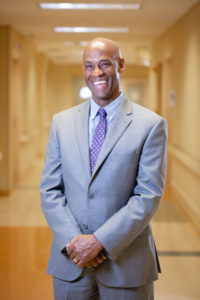
 Since March 1, 2022, we’ve been in the liturgical season of Lent, which is the 40-day period leading up to Easter. During this season, people that celebrate it take an inventory of themselves and decide they want to make a change and to give up something or begin to do something that they feel will draw them closer to God. They in essence confess they are falling short and there is something wrong in their lives — something they could do better or something they should not be doing — all in a quest to be closer to God.
Since March 1, 2022, we’ve been in the liturgical season of Lent, which is the 40-day period leading up to Easter. During this season, people that celebrate it take an inventory of themselves and decide they want to make a change and to give up something or begin to do something that they feel will draw them closer to God. They in essence confess they are falling short and there is something wrong in their lives — something they could do better or something they should not be doing — all in a quest to be closer to God.
I believe honest confession has a way of helping us see ourselves more clearly. Confession frees us from the paranoia of hoping no one finds out or fear of the penalties of falling short. Confession sets us free.
As I have shared with you before, Max Lucado is one of my favorite writers. I love his ability to tell a good story that accentuates a biblical principle. I was reading from his book “In the Grip of Grace,” and I came across a chapter that talked about confession, telling the truth. I would like to share some of those thoughts with you.
“Confession does for the soul what preparing the land does for the field. Before the farmer sows the seeds, he works the acreage, removing the rocks and pulling the stumps. He knows that seed grows better if the land is prepared. Confession is the act of inviting God to walk the acreage of our hearts. “There is a rock of greed over here Father, I can’t budge it. And that tree of guilt near the fence? Its roots are long and deep. And may I show you some dry soil, too crusty for seed?” God’s seed grows better if the soil of the heart is cleared.
And so, the Father and the son walk the field together, digging and pulling, preparing the heart for fruit. Confession invites the Father to work the soil of the soul. Confession seeks pardon from God, not amnesty. Pardon presumes guilt; amnesty, derived from the same Greek word as amnesia, “forgets the alleged offense without imputing guilt. Confession admits wrong and seeks forgiveness; amnesty denies wrong and claims innocence. Many mouth a prayer of forgiveness while in reality claiming amnesty. Consequently, our worship is cold. (why thank God for a grace we don’t need?) and our faith is weak (I’ll handle my mistakes myself, thank you).
We are better at keeping God out than we are at inviting God in. Sunday mornings are full of preparing the body for worship, preparing the hair for worship, preparing the clothes for worship…but preparing the soul? Am I missing the mark when I say that many of us attend church on the run? Many of us spend life on the run.
Grace means you don’t have to run anymore! It’s the truth, grace means its finally safe to turn ourselves in. Peter did! Remember Peter? Flash the sword and deny the Lord Peter? The apostle who boasted one minute and bolted the next? He snoozed when he should have prayed. He denied when he should have defended. He cursed when he should have comforted. He ran when he should have stayed. We remember Peter as the one who turned and fled, but do we remember Peter as the one who returned and confessed? We should.
How did the New Testament writers know of his sin? Who told them of his betrayal? And more importantly, how did they know the details? Who told them of the girl at the gate and the soldiers starting the fire? How did Matthew know it was Peter’s accent that made him a suspect? How did Luke learn of the stare of Jesus? Who told all four writers of the crowing rooster and the flowing tears? The holy spirit? I suppose it could be that each writer learned of the moment by divine inspiration. Or, more likely, each learned of the betrayal by an honest confession. Peter turned himself in. Somewhere in the Jerusalem shadows he quit running, fell to his knees, buried his face in his hands, and gave up. But not only did he give up, he opened up. He went back to the room where Jesus had broken the bread and shared the wine. There he is, standing in the doorway. “Fellows, I’ve got something to get off my chest.” And that’s when they learn of the fire and the girl and the look from Jesus. That’s when they hear of the cursing mouth and the crowing rooster. That’s how they hear the story. He turned himself in. How can I be so sure? Two reasons.First, he couldn’t stay away. When word came that the tomb was empty, who was the first out of the room? Peter. When word came that Jesus was on the shore, who was first out of the boat? Peter. He was on the run again. Only now he is running in the right direction.
Here is a good rule of thumb. Those who keep secrets from God keep their distance from God. Those who are honest with God draw near to God. This is nothing new. If you loan me your car and I wreck it, am I going to look forward to seeing you? No. it’s been that way since the beginning. How did Adam and Eve respond to God after they had sinned? They hid. “Where are you?” God asked, not for his benefit. He knew where they were. The question was spiritual, not geographical. Secrets erect a fence while confession builds a bridge.
Once there were a couple of farmers who couldn’t get along with each other. A wide ravine separated their two farms, but as a sign of their mutual distaste for each other, each constructed a fence on his side of the chasm to keep the other out. In time, however, the daughter of one met the son of the other, and the couple fell in love. Determined not to be kept apart by the folly of their fathers, they tore down the fence and used the wood to build a bridge across the ravine. Confession does that. Confessed sin becomes the bridge over which we can walk back into the presence of God.
There is a second reason I’m confident of Peter’s confession.
He could not stay silent. Only fifty days after denying Christ, Peter is preaching Christ. Peter cursed his Lord at the Passover. He proclaimed his Lord at the feast. This is not the action of a fugitive. What took him from traitor to orator? He let God deal with the secrets of his life. “Confess your sins to each other and pray for each other so that God can heal you.” (James 5:16)
If we confess our sins, he will forgive our sins, because we can trust God to do what is right. HE will cleanse us from all the wrongs we have done. Remember, the fugitive lives in fear, but the penitent lives in peace.
Once you are in the grip of grace, you’re free to be honest. Turn yourself in before things get worse. You’ll be glad you did.”
Max just shared a great illustration of the freedom that comes with confession. It is easy to talk about but can be difficult and scary to do. To do this you will have to trust God more than you trust yourself.
Written by Chaplain Smith and Max Lucado.
—————————————————————————–
Chaplain Shelby Smith served at a local church for 19 years before joining Arkansas Heart Hospital. Here, he has the opportunity to meet the spiritual needs of patients, their families and our staff. In addition to offering prayer and encouragement, Chaplain Shelby Smith shares a weekly devotional.